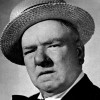HORTENSIO: There’s small choice in rotten apples.
William Shakespeare (1564-1616) English dramatist and poet
Taming of the Shrew, Act 1, sc. 1, l. 136 (1.1.136) (c. 1591))
(Source)
Quotations about:
lesser of two evils
Note not all quotations have been tagged, so Search may find additional quotes on this topic.
You should always choose the lesser of two evils.
[De duobus malis semper minus tamen est eligendum.]
Thomas à Kempis (c. 1380-1471) German-Dutch priest, author
The Imitation of Christ [De Imitatione Christi], Book 3, ch. 12, v. 2 (3.12.2) (c. 1418-27) [tr. Knox-Oakley (1959)]
(Source)
In this context, Thomas is speaking of the evil (suffering) of resisting temptation and losing out on fun times in this world, compared to the evil of eternal damnation, e.g.,
If thou say, that thou art not able to suffer much, how then wilt thou endure the fire hereafter? Of two evils the less is always to be chosen. That thou mayest therefore avoid the everlasting punishment, endeavour to endure present evils patiently for God's sake. [Anon. (1901)]
See also Cicero.
(Source (Latin)). Alternate translations:
Of two evils, the less evil is to be taken.
[tr. Whitford/Raynal (1530/1871)]
Of two evils, the lesser is to be chosen.
[tr. Whitford/Gardiner (1530/1955)]
Of two evils the lesse is alwaies to be chosen.
[tr. Page (1639), 3.12.5]
Nature, as well as Religion, teaches Men, of Two Evils to choose the less.
[tr. Stanhope (1696; 1706 ed.), 3.13]
Of two evils, the least is to be chosen.
[tr. Payne (1803), 3.9.4]
Of two evils the less is alway to be chosen.
[ed. Parker (1841)]
Of two evils, the least is to be chosen.
[tr. Dibdin (1851), 3.10.1]
Of two evils we ought always to choose the less.
[ed. Bagster (1860)]
Of two evils we should always choose the less.
[tr. Benham (1874)]
Of two evils the less is always to be chosen.
[tr. Anon. (1901)]
Of two evils, the lesser is always to be chosen.
[tr. Croft/Bolton (1940)]
Of two evils always choose the less.
[tr. Daplyn (1952)]
Of two evils, always choose the lesser.
[tr. Sherley-Price (1952)]
One must always choose the lesser of two evils.
[tr. Knott (1962)]
You must always choose the lesser of two evils.
[tr. Rooney (1979)]
Always choose the lesser of two evils.
[tr. Creasy (1989)]
But I have learned from philosophers that among evils one ought not only to choose the least, but also to extract even from these any element of good that they may contain.
[Sed quia sic ab hominibus doctis accepimus, non solum ex malis eligere minima oportere, sed etiam excerpere ex his ipsis, si quid inesset boni ….]
Marcus Tullius Cicero (106-43 BC) Roman orator, statesman, philosopher
De Officiis [On Duties; On Moral Duty; The Offices], Book 3, ch. 1 (3.1) / sec. 3 (44 BC) [tr. Miller (1913)]
(Source)
(Source (Latin)). Alternate translation:
This is given us for a rule by the learned, that when several evils are threatening us at once, we should not only choose to undergo the least, but extract some advantage out of them, if it be possible.
[tr. Cockman (1699)]
We have been taught by learned men, not only that we ought to choose the least of evils, but also to extract from them, whatever good they contain.
[tr. McCartney (1798)]
We have bene taught by learned men, that out of evils it is fit not only to choose the least, but also from those very evils to gather whatever good is in them.
[tr. Edmonds (1865)]
Philosophers say that one ought not only of evils to choose the least, but from even these least evils to extract whatever of good there may be in them.
[tr. Peabody (1883)]
Having been taught by philosophers not only to choose the lesser evil but even to extract whatever good is in it.
[tr. Gardiner (1899)]
Learned men have taught us that not only with a choice of evils we should choose the least, but that from the evil we should endeavor to extract some good.
[Harbottle, Dictionary of Quotations (Classical) (1906 ed.)]
Philosophers have taught me not only that one ought to choose the lesser evils but also that even from them one ought to gather whatever good they might contain.
[tr. Edinger (1974)]
See also Thomas à Kempis.
Hell, I never vote for anybody. I always vote against.
W. C. Fields (1880-1946) American entertainer [b. William Claude Dukenfield]
Comment to Gene Fowler
(Source)
Quoted in Robert Lewis Taylor, W. C. Fields, ch. 25 (1949). See also Adams.
More discussion about the origins of this quotation: I Never Vote For Anybody. I Always Vote Against – Quote Investigator.
If we look at the techniques of totalitarian government, it is obvious that the argument of “the lesser evil” — far from being raised only from the outside by those who do not belong to the ruling elite — is one of the mechanisms built into the machinery of terror and criminality. Acceptance of lesser evils is consciously used in conditioning the government officials as well as the population at large to the acceptance of evil as such.
Hannah Arendt (1906-1975) German-American philosopher, political theorist
“Personal Responsibility Under Dictatorship” (1964)
(Source)
Another point of disagreement is not factual but involves the ethical/moral principle […] sometimes referred to as the “politics of moral witness.” Generally associated with the religious left, secular leftists implicitly invoke it when they reject LEV on the grounds that “a lesser of two evils is still evil.” Leaving aside the obvious rejoinder that this is exactly the point of lesser evil voting — i.e. to do less evil, what needs to be challenged is the assumption that voting should be seen a form of individual self-expression rather than as an act to be judged on its likely consequences. […] The basic moral principle at stake is simple: not only must we take responsibility for our actions, but the consequences of our actions for others are a far more important consideration than feeling good about ourselves.
Noam Chomsky (b. 1928) American linguist and activist
“An Eight Point Brief for LEV (Lesser Evil Voting)” (15 Jun 2016) [with John Halle]
(Source)
Elections are won by men and women chiefly because most people vote against somebody rather than for somebody.
Franklin Pierce Adams (1881-1960) American journalist and humorist
Nods and Becks (1944)
Adams earlier used a similar phrase (not claiming attribution) in his "Conning Tower" column (13 Nov 1916): "Voters went to the polls, as had been observed frequently, with the intention to vote against Somebody rather than for Somebody." See also Fields.
More discussion about the origins of this quotation: I Never Vote For Anybody. I Always Vote Against – Quote Investigator.
Life often presents us with a choice of evils, rather than of goods.
Charles Caleb "C. C." Colton (1780-1832) English cleric, writer, aphorist
Lacon: Or, Many Things in Few Words, Vol. 2, § 102 (1822)
(Source)









